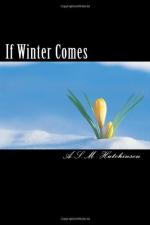And when Sabre expressed his gratification, “Enough, I have decided.”
In 1912 Sabre felt that he had now brought the publishing into line with the established departments. He had emphasized the firm’s reputation in this activity by the considerable success that attended two textbooks bearing (one in collaboration) his own name. “Sabre and Owen’s Elementary Mathematics” had been notably taken up by the schools. “Sabre’s Modern History”, shunned by the public schools in accordance with their principle of ignoring all history mellowed by fewer than three thousand years, had been received enthusiastically by the lesser schools wherein was then dawning the daring idea of presenting to the rising generation some glimmering conception of the constitutional and sociological facts into which it was arising.
The tributes with which this slim primer of one hundred and fifty pages for eighteen pence had been greeted inspired Sabre towards a much bolder work, on which the early summer of 1912 saw him beginning and into which he found himself able to pour in surprising volume thoughts and feelings which he had scarcely known to be his until the pen and the paper began to attract them. The title he had conceived alone stirred them in his mind and drew them from it as a magnet stirs and draws iron filings. “England.” Just “England.” He could see it printed and published and renowned as “Sabre’s England.” Kings were to enter this history but incidentally, as kings have in fact ever been but incidental to England’s history. It was to be just “England”; the England of the English people and how and why. And the first sentence said so.
“This England” (it said) “is yours. It belongs to you. Many enemies have desired to take it because it is the most glorious and splendid country in the world. But they have never taken it, because it is yours and has been kept for you. This book is to tell you how it has come to be yours and how it has been kept for you,—not by kings or by statesmen, or by great men alone, but by the English people. Down the long years they have handed it on to you, as a torch is sent from hand to hand, and you in your turn will hand it on down the long years before you. They made the flame of England bright and ever brighter for you; and you, stepping into all that they have made for you, will make it bright and brighter yet. They passed and are gone; and you will pass and go. But England will continue. Your England. Yours.”
CHAPTER VII
I
Mabel called Sabre’s school textbooks “those lesson books.” After she had thus referred to them two or three times he gave up trying to interest her in them. The expression hurt him, but when he thought upon it he reasoned with himself that he had no cause to be hurt. He thought, “Dash it, that’s what they are, lesson books. What on earth have I got to grouse about?” But they meant to him a good deal more than what was implied in the tone and the expression “those lesson books.”




